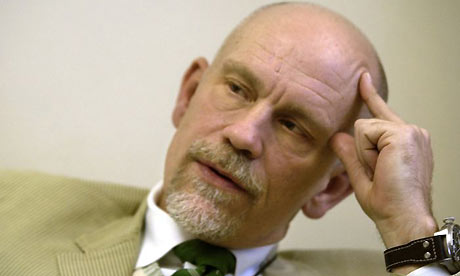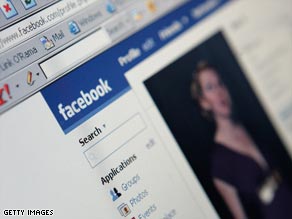Kirk Shinkle
A month into the new year, and the American economy is reeling from the ongoing banking crisis, battered retirement accounts, and mounting unemployment. Who are the folks who might make things better, or even worse? Who are the people who will move markets this year, up or down? To help you keep track of these "market movers," U.S. News & World Report compiled a list of key CEOs, politicos, and even media stars to watch in 2009. So if things do improve, you'll know whom to credit. And if they don't, you'll know whom to blame.
1) Barack Obama. Tackling the economic mess is job one for the new president, and then it's on to challenges in healthcare, climate change, and financial re-regulation. It's a daunting list for the new commander-in-chief who famously said "the challenges we face are real ... [and] they will be met."
2) Ben Bernanke. Now that the Federal Reserve chairman has slashed interest rates to almost zero and lent billions to the ailing banking sector, what comes next? He'll need to stay nimble this year, as the central bank keeps trying to figure out how to deal with all those bad mortgage assets while supporting a Fed balance sheet that's ballooned to $2 trillion.
3) Lawrence Summers. He's a brilliant economist and a former Clinton-era treasury secretary. Now, as head of the National Economic Council, he's a major force in sizing up the Obama Administration's stimulus package.
4) Timothy Geithner. The youthful Treasury Secretary (he's 47) will be tasked with figuring out a plan to heal the banking sector. His time in the trenches during the collapse of Bear Stearns and Lehman Bros. give him credibility in the finance world, even after it came to light that the country's most visible financial enforcer forgot to pay some of his own taxes.
5) Jean-Claude Trichet. The president of the European Central Bank caught flack for hiking interest rates in mid-2008, but reversed course in response to the global downturn later in the year. Since then, he's proved surprisingly creative in dealing with the global spread of the banking crisis. Still, as lenders worldwide (and Europe in particular) face mounting losses, his job is far from done.
6. Warren Buffett. The legendary investor took full advantage of market turmoil last fall, decrying the rise of "financial weapons of mass destruction" while making billion-dollar investments in beaten-down American companies including Goldman Sachs and General Electric. Buffett's investments didn't escape the market's decline in late 2008, but if there's any environment where a value-investing guru can prosper, it's this one.
7) Bill Gross. No other bond investor carries as much weight as Bill Gross, co-founder of the $800 billion Newport Beach, Calif.-based bond giant Pacific Investment Management Co., or PIMCO. Risky bets placed on Fannie Mae, Freddie Mac, and other finance and mortgage-related securities late last year showed some daring. They'll play out in 2009. His latest advice for fixing the economy: "[T]he remedy for this deflationary delevering and mini-depression is simple and almost axiomatic: stop the decline in asset prices."
8) Lou Jiwei. As chairman of China Investment Corp., the $200 billion state-run foreign investing arm, Jiwei suffered through bad bets on investments in American financial firms like Blackstone and Morgan Stanley. Now, the technocrat is shying away from the U.S. banking sector, and raising stakes in institutions at home.
9) Barney Frank. As the chairman of the House Financial Services Committee, the colorful and whip-smart Massachusetts Democrat will play a key role in the new Congress's efforts to resolve the worst financial crisis since the Great Depression. He's also addressing the regulatory shortcomings that helped create it.
10) Sheila Bair. By arguing that the federal government should do more to modify troubled loans--and then introducing a program that would do so--Bair, who heads the Federal Deposit Insurance Corp., has emerged as a leading figure in the high-profile battle against foreclosures.
11) Kenneth Lewis. For now, Bank of America CEO Kenneth Lewis remains in charge of the consumer-banking giant. After losing face following unexpected losses from the $21 billion emergency acquisition of Merrill Lynch, he's fighting to restore the bank's profitability--and his reputation.
12) Jamie Dimon. The J.P. Morgan Chase head is either the smartest guy on Wall Street, or just the luckiest. He got the deal of the century by picking up Bear Stearns and Washington Mutual, deals which makes Morgan, by some measures, America's biggest bank. Now all he has to do is rebuild destroyed shareholder value at a time when a slow economy and tighter regulation could make banking a far less profit-friendly business.
13) Vikram Pandit. Citigroup's beleaguered CEO has a tough year ahead (if he manages to keep his job). The looming questions: What's to be done with a $306 billion portfolio of troubled mortgages and other assets? And will the bank weather mounting credit card losses and consumer defaults?
14) Jim Cramer. Love him or hate him, the former hedge-fund manager turned "Mad Money" host on CNBC still has a voice that out-booms all others when it comes to stock picking. Lately, his manic antics have included scathing attacks on asleep-at-the-switch regulators and tossing his hat into the ring for the job of chairman of the Securities and Exchange Commission.
15) Prince Alwaleed bin Talal. The billionaire Saudi investor has had a rocky go since his firm, Kingdom Holding Co., went public on the Saudi stock exchange in 2007. A huge stake in Citigroup went south last year, sending Kingdom shares down 62 percent. Alwaleed's personal net worth slumped to an estimated $17 billion, down from $21 billion in 2007.
16) Eric Schmidt. The Google CEO is forging ahead despite a wavering stock price on the strength of a 60 percent-plus market share in Internet searches and the accompanying highly profitable ads. He's also behind new moves into coming battles in the browser and smart-phone wars.
17) Meredith Whitney. Oppenheimer's outspoken banking analyst has become the closest thing to a household name in the research world, thanks to gutsy but accurate forecasts of financial trauma. Her bearish calls made her one of the most prescient figures on Wall Street and influential enough to make blue-chips tank and CEOs tremble.
18) Steve Jobs. It's hard to think of any company more tied to the personality of its leader than Apple. It's not surprising, given Jobs' role as the architect behind runaway successes including the iPod, iTunes, and iPhone. A swooning share price amid rumors regarding his future at the company shows Wall Street still believes Apple's fate rests on the man who made Mac.
19) Austan Goolsbee. The young star from the University of Chicago Graduate School of Business is the cheerful face of centrist, market-friendly policies in the Obama Administration. He's won over conservative critics including George Will despite his own criticisms of supply-side conservative policies. His role as chief economist for the President's Economic Recovery Advisory Board will include helping to fix the financial crisis while keeping up the administrations' pro-market, pro-trade credibility.
20) Rupert Murdoch. He won the battle to buy the Wall Street Journal, and the billionaire News Corp. head continues to oversee a sprawling global empire of media properties. How he'll fare during one of the worst advertising markets in history remains to be seen.
21) Nouriel Roubini. They call him "Dr. Doom." The New York University economist has the right to wear the title as a badge of honor. After correctly predicting the severity of the housing and credit crisis, he's a continually popular source for the latest version of what could still go very wrong in the economy.
22) Maria Bartiromo. Anchor of CNBC's "Closing Bell with Maria Bartiromo" and host and managing editor of the nationally syndicated "Wall Street Journal Report with Maria Bartiromo," she's become the first face of financial news during one of the worst downturns in history.
23) Neil Cavuto. Fox's irascible Neil Cavuto has seen his profile rise as the financial crisis rages and the economy swoons. A familiar face on both the Fox News Channel and Fox Business Network, he's the network's unapologetic free-market voice at a time when defending capitalism has become a tougher sell.
24) Lawrence Kudlow. If Barack Obama makes the case for higher taxes on the rich, you can bet CNBC host Lawrence Kudlow will be taking the other side of that trade as a long-time banner-carrier for the tenets of Reagan's supply-side revolution.
25) Paul Krugman. Arguably America's best-known living economist, Krugman won the 2008 Nobel Prize in economics for his work in international trade. In his more public role as one of the staunchest critics of the Bush Administration, the New York Times columnist and author remains both an unapologetic partisan and a helpful demystifier of complex economics.
Original here




 At a time when it's so important for consumers to monitor their credit scores, Experian, one of the three credit reporting agencies, has decided
At a time when it's so important for consumers to monitor their credit scores, Experian, one of the three credit reporting agencies, has decided 






 Wells Fargo, “once among the nation’s
Wells Fargo, “once among the nation’s 

